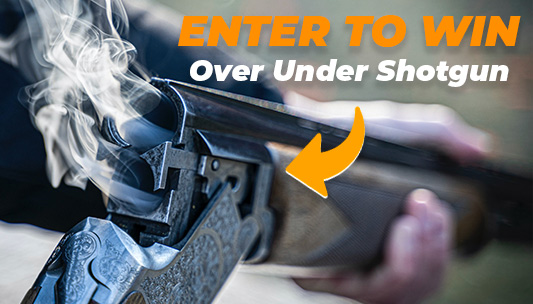Learning from Competition
Still not convinced that gun games are for you? One of the big reasons I love competitive shooting, and one major reason I’m so passionate about bringing the world of competition to more gun owners, is because of the huge learning opportunity it opens up to everyday people.
Matches are an opportunity to test your skills under friendly pressure, and in many cases might provide the only environment where you can regularly practice certain skills. For example, you might not have access to a range that lets you practice common defensive pistol skills like drawing from a holster or shooting while moving, or you might only have 25 or 100 yards and a fixed bench available to shoot your rifle.
While matches are scored events, you don’t have to approach them with the attitude that the only win is to beat everyone else. If you have specific shooting goals, you can pursue those within the framework of the rules for many shooting sports. After all, many matches, especially the smaller local ones that are most accessible for new shooters, are generally for bragging rights only.
If, for instance, you believe that your training requires you to always use cover or concealment when engaging a threat, then you don’t have to stand in the middle of doorways or windows in a USPSA stage. Standing in the open is an acceptable option in that sport, but it’s not required. You might take a small penalty in time, but that’s unimportant if you shoot for your own wins.
The concept of “small wins” is an important one for beginning and experienced competitors alike. It’s the idea that you can win by meeting personal goals while ignoring where that may leave you in the overall finish order. Examples of small wins include not missing any targets, shooting a stage with no penalties, or just finishing a match without getting disqualified.
As you compete, you will likely find that you aren’t as good at certain shooting skills as you thought you were. That’s okay! Now that you’ve discovered that you can’t perform those skills to the level you want to, you can work on them whether through formal instruction or further practice.
One reason I recommend that people wait until after their first few matches to figure out what classes to take is because the stress of competition highlights the actual areas that need work while the fun of competing will draw you back for more practice. Another reason is that many competition-specific classes will assume a basic grasp of the rules of the game in order to teach you how to improve your performance in that sport.
Practice doesn't have to take place only on the range. Many of the skills that will make you successful in the shooting sports and by extension, some of the defensive skills that may go along with them, can be practiced off the range through a process called dry fire. It’s important to follow all of the regular gun safety rules, along with specific dry fire safety protocols. When done effectively, you can learn a lot about and greatly improve your gun handling and other skills without needing to go to the range or shooting real (and expensive!) ammunition.
While you can certainly pursue all of these learning opportunities without shooting competitively, I’ve found that going to matches has given me a good way to test my skills under outside pressure. Matches don’t allow me to stay in my comfort zone and only try what I know I’m already good at, and they help provide an objective measurement of how I’m shooting. I hope to see you on the range, giving competitive shooting a try!
Editor's Note–
Let us know what you think in the comment section below. Are you a competitive shooter? What have you learned so far? Also, if you have any questions, please feel free to ask! Make sure you like Gun Carrier's Facebook Page so you don't ever fall behind on what Annette says about competition shooting.





